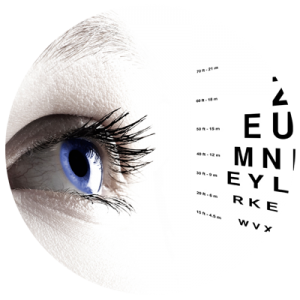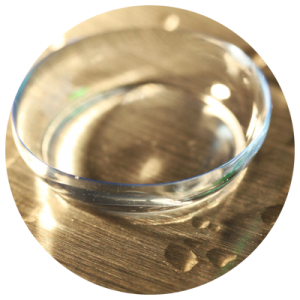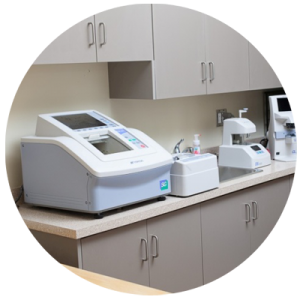Eye Care Services
 An eye examination is a series of tests performed by an ophthalmologist, optometrist, or orthoptist assessing vision and ability to focus on and discern objects, as well as other tests and examinations pertaining to the eyes.
An eye examination is a series of tests performed by an ophthalmologist, optometrist, or orthoptist assessing vision and ability to focus on and discern objects, as well as other tests and examinations pertaining to the eyes.
Health care professionals often recommend that all people should have periodic and thorough eye examinations as part of routine primary care, especially since many eye diseases are asymptomatic.
Eye examinations may detect potentially treatable blinding eye diseases, ocular manifestations of systemic disease, or signs of tumours or other anomalies of the brain.
We provide advanced optometric examinations to patients of all different ages. Each eye exam includes a review of your health and ocular history, measurement of your prescription, evaluation of your eye health, and a determination of how well your two eyes work together.
 Glaucoma is a group of eye disorders that lead to progressive damage to the optic nerve. People with glaucoma can lose nerve tissue, resulting in vision loss.
Glaucoma is a group of eye disorders that lead to progressive damage to the optic nerve. People with glaucoma can lose nerve tissue, resulting in vision loss.
The optic nerve is a bundle of about 1 million individual nerve fibers that transmits the visual signals from the eye to the brain.
In the most common form of glaucoma, primary open-angle glaucoma, the fluid pressure inside the eye increases.
This increase in pressure may cause progressive damage to the optic nerve and loss of nerve fibers. Vision loss may result. Advanced glaucoma may even cause blindness.
Not everyone with high eye pressure will develop glaucoma, and some people with normal eye pressure will develop glaucoma. When the pressure inside a person’s eye is too high for a particular optic nerve, whatever that pressure measurement may be, glaucoma will develop.
Glaucoma is the second-leading cause of blindness in the U.S. It most often occurs in people over age 40, although an infant (congenital) form of glaucoma exists. People with a family history of glaucoma, African Americans over the age of 40 and Hispanics over the age of 60 have an increased risk of developing glaucoma. Other risk factors include thinner corneas, chronic eye inflammation and taking medications that increase the pressure in the eyes.
The most common form of glaucoma, primary open-angle glaucoma, develops slowly and usually without any symptoms. Many people are not aware they have the condition until they have significant vision loss. Initially, glaucoma affects peripheral or side vision, but it can advance to central vision loss. If left untreated, glaucoma can lead to significant vision loss in both eyes, and may even lead to blindness.
A less common type of glaucoma, acute angle-closure glaucoma, usually occurs abruptly due to a rapid increase of pressure in the eye. Its symptoms may include severe eye pain, nausea, redness in the eye, seeing halos or colored rings around lights and blurred vision. This is an emergency condition in which severe vision loss can occur quickly; see your optometrist immediately.
Glaucoma cannot currently be prevented. But if it is diagnosed and treated early, it can usually be controlled. Medication or surgery can slow or prevent further vision loss.
However, vision already lost to glaucoma cannot be restored. That is why the American Optometric Association recommends an annual dilated eye examination for people at risk for glaucoma. Depending on your specific condition, your doctor may recommend more frequent examinations.
 Cataract surgery is the removal of the natural lens of the eye (also called “crystalline lens”) that has developed an opacification, which is referred to as a cataract.
Cataract surgery is the removal of the natural lens of the eye (also called “crystalline lens”) that has developed an opacification, which is referred to as a cataract.
Metabolic changes of the crystalline lens fibers over time lead to the development of the cataract and loss of transparency, causing impairment or loss of vision. Many patients’ first symptoms are strong glare from lights and small light sources at night, along with reduced acuity at low light levels.
During cataract surgery, a patient’s cloudy natural cataract lens is removed and replaced with a synthetic lens to restore the lens’s transparency.
Following surgical removal of the natural lens, an artificial intraocular lens implant is inserted (eye surgeons say that the lens is “implanted”). Cataract surgery is generally performed by an ophthalmologist (eye surgeon) in an ambulatory (rather than inpatient) setting, in a surgical center or hospital, using local anesthesia (either topical, peribulbar, or retrobulbar), usually causing little or no discomfort to the patient. Well over 90% of operations are successful in restoring useful vision, with a low complication rate. Day care, high volume, minimally invasive, small incision phacoemulsification with quick post-op recovery has become the standard of care in cataract surgery all over the world.
 We offer popular lens options such as transistions, progressive, anti reflective lenses and much more.
We offer popular lens options such as transistions, progressive, anti reflective lenses and much more.
Sunglasses are a form of protective eyewear designed primarily to prevent bright sunlight and high-energy visible light from damaging or discomforting the eyes.
They can sometimes also function as a visual aid, as variously termed spectacles or glasses exist, featuring lenses that are colored, polarized or darkened. In the early 20th century they were also known as sun cheaters (cheaters being an American slang term for glasses).
The American Optometric Association recommends sunglasses whenever a person is in the sun to protect the eyes from ultraviolet radiation (UV) and blue light, which can cause several serious eye problems. Its usage is mandatory immediately after some surgical procedures such as LASIK and recommended for a certain time period in dusty areas, when leaving the house and in front of a TV screen or computer monitor after LASEK. Sunglasses have long been associated with celebrities and film actors primarily from a desire to mask their identity. Since the 1940s sunglasses have been popular as a fashion accessory, especially on the beach.
Large selection of frames (from designer to budget friendly) to meet your needs
- New and Exclusive line of Toni Michele Frames, only available at Parkway Eye Care locations
- Full selection of Designer to Budget friendly frames.
- Wide variety of children’s frames and sports goggles
- Sunglasses
- All Lens options such as Anti-Reflective Coating, Transitions,
- Progressive lenses and more
- Lens repair kits and accessories
- Service agreements to help defray the cost of replacement glasses or contacts
- Gift cards available for personal use or make great gift ideas.
- Give the Gift of Sight!
- Periodic Trunk Shows featuring select Designers
 A contact lens, or simply contact or CL, is a thin lens placed directly on the surface of the eye. CLs are considered medical devices and can be worn to correct vision, or for cosmetic or therapeutic reasons. In 2004, it was estimated that 125 million people (2%) use CLs worldwide, including 28 to 38 million in the United States. As of 2010, the average age of CL wearers globally was 31 years old, and two thirds of wearers were female.
A contact lens, or simply contact or CL, is a thin lens placed directly on the surface of the eye. CLs are considered medical devices and can be worn to correct vision, or for cosmetic or therapeutic reasons. In 2004, it was estimated that 125 million people (2%) use CLs worldwide, including 28 to 38 million in the United States. As of 2010, the average age of CL wearers globally was 31 years old, and two thirds of wearers were female.
People choose to wear CLs for many reasons. Aesthetics and cosmetics are the main motivating factors for people who want to avoid wearing glasses or to change the appearance of their eyes. Others wear CLs for functional or optical reasons. When compared with spectacles, CLs typically provide better peripheral vision, and do not collect moisture (from rain, snow, condensation etc.) or perspiration; this makes them ideal for sports and other outdoor activities. CL wearers can also wear sunglasses, goggles, or other eyewear of their choice without having to fit them with prescription lenses or worry about compatibility with glasses. Additionally, there are conditions such as keratoconus and aniseikonia that are typically corrected better with CLs than with glasses.[citation needed]
Contact lenses market is likely to grow due to the increasing occurrence of eye related conditions such as astigmatism, hypermetropia and myopia. The other drivers of this market are increasing population, fashion statement and technological advancement.
We offer thorough eye exams for contact lenses to patients of all ages. If you’re a first time user of contacts, we can give you instructions on how to properly use them.
Dr. Kimberly Davis- Brown will help you decide whether contacts are a good solution for your eyes, and provide you with the care you need to ensure you have the best opportunity for a successful fit.
Dr. Brown – Contact Lens Distributor
We offer a large selection of fashionable eyewear, the most up to date Sunglass styles and the latest in contact lenses. We specialize with astigmatic and hard to fit contact lens patients. At Parkway Eye Care, we offer comprehensive vision services for the entire family.
REMINDER
Before you click Place Your Order you must have a valid contact lens prescription on file with us, provide one if seen elsewhere or schedule an appointment for a contact lens evaluation. Contact lens prescriptions expire after a year of last fitting date.
 Our state of the art equipment helps to provide for a quick turn around of most eye glass orders.
Our state of the art equipment helps to provide for a quick turn around of most eye glass orders.
In addition to the optical lab providing for a fast turn around on glasses orders, we maintain the highest level of lens fabrication equipment which enables the production of beautifully crafted eye glasses.

CONTACT US TODAY!
Most Insurances Accepted
- Multiple Payment Options
Full Range Of Services
- 50 Union Avenue, Suite 104, Irvington NJ 07111
PHONE: 973-372-4000 - 200 Central Avenue, Suite D, Orange NJ 07050
PHONE: 973-266-1010
